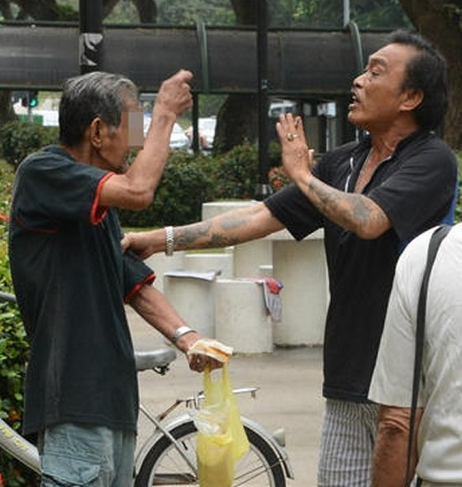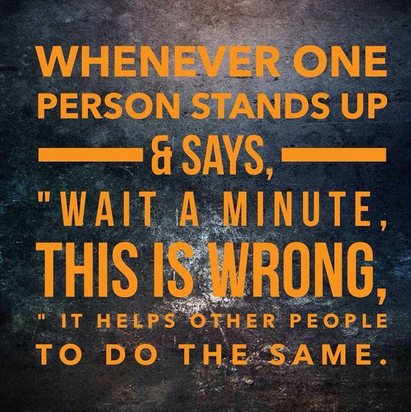by Sumithri Venketasubramanian, Change Maker
The recent viral video of the abuse of an elderly woman has brought to light something that many of us have probably experienced before: what do I do as a bystander in light of abuse?
When the victims of abuse are those close to us – our friends, family members and neighbours – we might feel compelled to intervene, but might also not know how to. After all, there are so many questions that could affect how we react: ‘It could just be a “family matter”, should I get involved?’ ‘What if by stepping in, I put the victim’s safety at further risk?’ ‘How do I ensure that I won’t get hurt in the process?’
 And of course, it’s always important to assess the situation before taking action. Jumping in, or making decisions on behalf of the victim(s), without weighing the pros and cons of our options may end up putting ourselves or others in danger.
And of course, it’s always important to assess the situation before taking action. Jumping in, or making decisions on behalf of the victim(s), without weighing the pros and cons of our options may end up putting ourselves or others in danger.
Abuse can have many forms, including physical, psychological, sexual, financial and verbal. Some signs are unexplained wounds, isolation, repeated absence from work or school, restlessness, anxiety and an inability to complete tasks. Due to the traumatic nature of abuse, it’s important to remain supportive and patient. Just being there for the victim and assuring them that they’re not at fault can be immensely helpful. Letting them know that you can be trusted and will support them with whatever they choose to do may encourage them to cope with their emotions better.
Ask them what they would like to do, and respect their decision. In many cases, the perpetrator is known to the victim, and it may not be easy to leave their homes in cases of domestic, child or elder abuse, for example. While it may seem ‘right’ to intervene and remove the affected from the abusive environment, doing so without their full consent may cause distrust within your relationship, which may not really aid the situation.
 Moreover, financial dependence and emotional attachment may also affect the decision to leave, move out or call the police. To a third-party, an abusive situation may seem evident, but to those involved, the lines may be blurred. Using words like “abuse” may be shocking to the victim, because they may not have viewed it as such. Instead, provide resources that may help, such as helplines, counselling services, nearby police offices, family service centres or help centres. (Some useful helplines can be found here.) Should they choose to report the case or seek help services, offering to go with them can help them feel safer in such an environment.
Moreover, financial dependence and emotional attachment may also affect the decision to leave, move out or call the police. To a third-party, an abusive situation may seem evident, but to those involved, the lines may be blurred. Using words like “abuse” may be shocking to the victim, because they may not have viewed it as such. Instead, provide resources that may help, such as helplines, counselling services, nearby police offices, family service centres or help centres. (Some useful helplines can be found here.) Should they choose to report the case or seek help services, offering to go with them can help them feel safer in such an environment.
Should you suspect violence within a neighbour’s/friend’s/relative’s home, calling the police is an option that you can consider. The safety of those involved is of utmost importance. However, note the potential risks associated with doing so and decide accordingly. Generally, even after a report has been made, the perpetrator may not be removed from their home until sufficient evidence proving that they’ve caused harm has been produced. Should it come to the attention of the abuser that the abuse has been reported, the situation might escalate and the victim may be put in further danger. Evaluate the situation carefully. For the most part, though, calling the police is the right thing to do, and not doing anything at all could be worse than ‘interfering’.
Saying stuff like “I told you so” or “why didn’t you leave years ago” doesn’t help anybody; it may even cause them to feel guilty about their experience. Dealing with abuse is very difficult, and the best that we can do is to provide support and encouragement to our friends, family members or neighbours as they recover from what they’ve been though.
About the Author: Sumithri is a passive-aggressive activist who enjoys writing lengthy blog posts on some of the many issues faced in the world. She’s still trying to figure out which of the many social injustices to dedicate her life fighting against, but whatever it is, will contribute the best she can.
